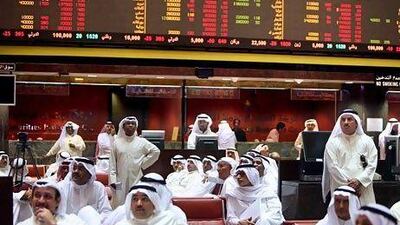Kuwait has some way to go to meet international standards of investor best-practice, with much of the financial infrastructure of the country characterised as a "work in progress" over years of policy inertia and inconsistency, say professionals working there.
Even one of the key architects of the country's financial ambitions believes changes to "business culture, vision and management style are required before Kuwait can hope to challenge as a regional financial centre".
In two examples of the problems facing Kuwait, the privatisation of its national stock market has been postponed until next year and the country's market regulator only started to operate this year amid an internal upheaval of its staff.
Under the Capital Markets Authority (CMA) law, passed almost two years ago, 50 per cent of the Kuwait Stock Exchange Company was to have been floated in an initial public offering for Kuwaiti citizens, with the rest sold to companies listed on the bourse by March.
The law also mandated the launch of an independent regulator with the aim of encouraging transparency. Kuwait's stock market is the second-most liquid exchange in the Arabian Gulf after Saudi Arabia with an average volume of US$72 million (Dh264.47m) last year.
But the move to create a commercial company rebranded as Bourse Kuwait has been met with intense opposition from the exchange's employees, who have long regarded themselves as public servants in a government institution that dates back to the early 1980s.
"There has been a lot of staff unrest," said Issam Al Usaimi, the head of the projects management office at the Kuwait Stock Exchange. "They have lost patience and trust. Many of them are taking legal action."
Earlier this year they threatened to strike, he said.
Privatisation of government organisations are rare in the Gulf, where citizens prefer to work in the public sector because of its typically shorter working hours, higher pay and better job security.
As soon as the CMA law came into effect, the regulator legally owned all assets of the Kuwait exchange. Making matters more sensitive, the CMA was able to take on its watchdog role this year only after three out of five of its government-appointed commissioners were replaced. Once the new entity was established, there would have been a clear split between the Kuwait exchange and the regulator and staff would have been assigned to either of the institutions.
The regulator had appointed HSBC to advise on the transition and a report was expected to be finalised by the fourth quarter this year, Mr Al Usaimi said. HSBC was also expected to line up potential investors interested in owning shares of Bourse Kuwait by that time, he said.
Kuwait's bourse has a market capitalisation of $100 billion, with 215 local and foreign firms listed. It will be the second publicly owned exchange in the Gulf after the Dubai Financial Market.
"Kuwait's exchange is going to have to be commercial, which would require a change in its business culture, vision and strategic thinking, with a different management style," said Mr Al Usaimi. "Hopefully next year will be much better than 2012, in terms of stability of the organisation and moving forward."
Kuwait's stock market was hit hard after the global financial crisis left exposed many of its listed investment companies, which borrowed heavily from the country's banking sector to invest in the region, and forced them to restructure billions of dollars worth of corporate debt.
The regulator assumed its enforcement role this year, issuing penalties and suspending shares of companies, to tighten regulation and improve the transparency of the market ahead of the privatisation of the stock exchange.
"The regulator has to clean the problems before going to any restructuring for the Kuwaiti exchange," said Wadah Al Taha, the chief investment officer at Al Zarooni Group, an investment company in Dubai.
"It has been a long time coming."
In March, the regulator said it was considering suspending trading in the shares of 67 companies for failing to report their annual financial results by the April 1 deadline.
In May, a number of companies have had their shares suspended after they failed to report their first-quarter financial results within the required 45-day grace period.
The regulator has also moved to de-list 20 companies in the past year and Mr Al Usaimi anticipates more de-listings in the coming months.
"We need to earn the trust of investors back, which comes from seeing reliable companies listed with good performance," he said.
"We need to see the relationships between the companies and banks return to normalcy and the end of debt rescheduling.
"Investors want to have a clear picture of the future of those banks, whether they will have a problem with rising loans in the future."
twitter: Follow and share our breaking business news. Follow us
iPad users can read the digital edition of business section as it was printed via our e-reader app. Click here

